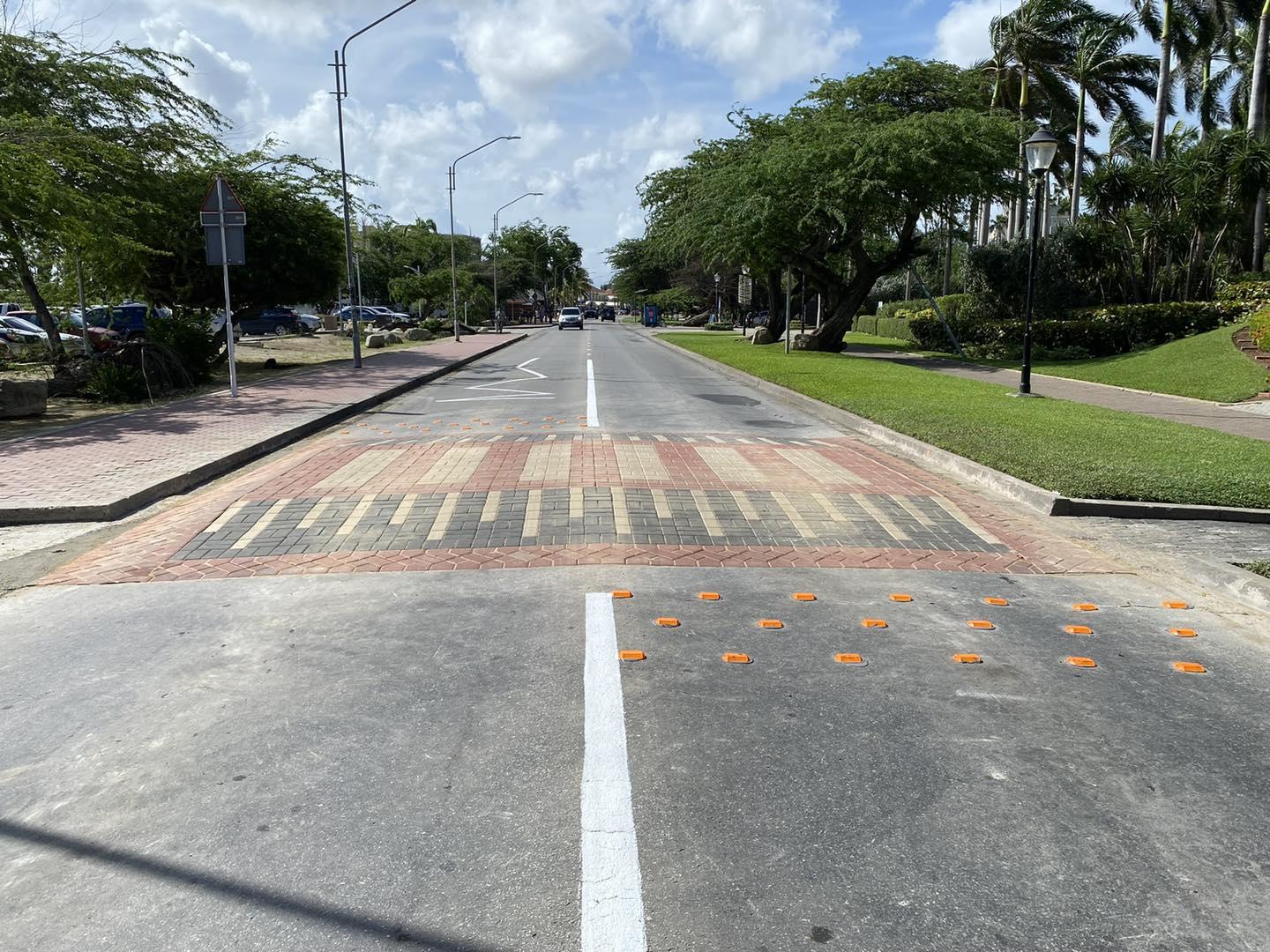
6 minute read
2.1.1 Transportation Problems and Solutions
P The most discussed item by the participants in transportation issues were the pirate transportation, specifically in the North area, passengers to be transported from North to Oranjestad. P The main issues mentioned for the permit holders is in the hotel area- between the TX (Taxis), T (Tour Operators) and O (Unregulated Operators). P The tourists do not know the difference between the three types of transportation options. P The permit holders do not adhere to the rules stipulated by the permit. In particular, some T & O permit holders are doing the jobs of both taxis and tour operators. P The participants stated that there is lack of information and that hotels or other hospitality companies do not provide proper explanations regarding different transportation options e.g., Taxis and O transportation. S Tourists use Facebook to ask where they can find a taxi and inquire about extra luggage charges that they do not know about.
P/S There is some information available at the airport, but participants mentioned that Aruba.com for example, does not have enough information regarding transportation services. P Another issue that was mentioned is overcharging. The taxi prices in Aruba are set and this still happens, because tourists are unaware of the structure or do not have the pricelist. Moreover, it was discussed that because the O permit is not regulated, they can ask their own price, with no limit on luggage, while for taxis there is a set price. This creates a disadvantage for the taxi drivers. It appears to the tourists that the Ts and Os are doing the same service. There are over 300 permits for each of these transportation types. The participants mentioned that at the airport, Taxis have been moved to the 2nd lane, while T and Os have moved to the 1st lane.
P Even though the permit stipulates that the transfers need to be prepaid as part of a packaged deal to pick up and drop off at the hotel/accommodation, there are instances where the O drivers offer incoming passengers the option to board on a bus vs. going outside to hail a taxi. Again, creating an unfair playing field because taxi drivers do not enter the airport arrival hall. It was mentioned that the T and O permits have the specific conditions and rules described in the permit, however, the drivers of these vehicles do not adhere to them and are performing similar work as taxis. Permits holders have all the correct information on rules, but it needs to be enforced, as tourists do not know the difference between types of transportation options. P It is difficult for DTP to control which tourists have prepaid the service. This creates a loophole and an environment where certain operators misuse the system. For example, there are people who act like taxis, and they do not follow the rate requirements and then people think that they are taxis, and they are T and O license plates. The permits for the T&O have requirements of what they can do and what they cannot do. They are not permitted to act like taxis but do so anyway. There are pre-paid arrangements instead of postpaying arrangements. P Another participant mentioned that it is hard to get around the island as there are more drivers than is needed on the island. Taxi drivers and Bus drivers are earning less because of the Ts and Os.
P The issue of control was brought up by nearly all participants numerous times. According to them, even though DTP is called to report a problem, they cannot do anything. As they do not have any BOA officers in service, and the incompliance is repeated without any consequence. This is a major issue that can affect the quality of service. The participants expressed that the department does not have adequate control. P/S And if a complaint is made to the department, by the time they arrive, the situation has been changed/modified. There is no clear process for complaints, and it is recommended to work with certain protocols. S Hotels can help in asking the O drivers which company they are working for. There is a need for more enforcement of the rules. More control and enforcement by the police since the DTP inspectors “cannot do anything”. Rules and regulations are there to be enforced. The department is not functioning the way it should be, the participants are not sure if this is because of lack of funds.
S Permits need to be given only to drivers who want to do this as their work, and as with any other job, you must adhere to the rules and regulations. S Enforcing control with the police department (this used to be how it was done) is a possible solution. DTP needs to work towards enforcement. S Transportation solutions proposed by participants, two mentioned optimizing street lighting for more safety around Hilton and Hyatt. S Also, to include the pricelist in each taxi’s car so that the tourist can see. In addition, have some information displayed at the lobby or waiting area at the hotels and airport. Even though there is some information at the airport, it can be optimized. Also, it is important to keep the taxi drivers informed and involved.
S When there was a booth at the airport things ran smoother and the “abuse” was not evident, or at least controlled. It is recommended to seek funding and / or support from ATA/AHATA/AAA or TPEF to reinstate the dispatcher booth at the airport and seek funding for BOA officer training. Some of the specific comments made by interview/focus group participants are below: P One call to commission would deliver immediate results, now 20 calls nothing gets done. Participants suggested to place the control under the police again, but another mentioned that the police do not want to do it anymore. Another shared that there is police officer that is now on pension, who would do random checks and control the insurance, etc. using a database. There used to be better control, all the information is supposed to be there. In the evening they control for paperwork even if they have the info, but because they do not have the BOA they cannot do anything. P Another participant mentioned that politics impedes control as well, knowing the inspectors or other DPT employees. The rules are not being followed, control is being limited and sanctions are not possible. S Again, it was mentioned to train employees to become BOA so that the control and give fines or other sanctions. P A participant mentioned that with the O permit anyone can become a driver with a simple drivers’ license, and there is a substantial increase in O permits (prepaid/outside US 24 hours before arrival), making it more difficult to control. Note: this has been verified by the director, because they do not need a “rijvergunning” (list of requirements) to be able to drive. P In addition, another participant stated that the T and O transports can do the work of a taxi once they receive a permit, because it cannot be easily controlled.
If all is regulated, you are responsible for your actions, for example, a colleague taxi driver transported six tourists in her car, the insurance was only for 5 passengers, she lost everything. S Participants discussed the 7-5 passengers change that occurred 20+ years ago, and they all prefer to go back to 7 passengers. It was mentioned that the change came from a small group (political), who are no longer driving. The change is requested because most families are 6 or 7. P And because O permit holders are primarily larger vehicles, they are taking away jobs from the Taxis.








